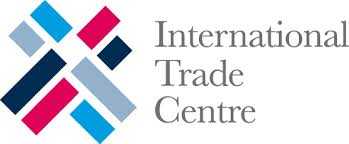Achieving scale in sustainability
Another area we believe is critical is to achieve scale in sustainability by reducing complexity and costs and increasing support to producers. Under our Trade for Sustainable Development (T4SD) programme ITC catalogues standards information and acts as a neutral party in providing information and advice to suppliers across a wide range of sectors.
In coffee, we have all the major recognized standards such as 4C, Organic, Fair Trade, Utz, Rainforest Alliance. The proliferation of standards raises costs and increases complexity for producers who want to improve their compliance.
T4SD started as a way to collect data and improve transparency. Today we are at the center of sustainability standards, allowing us to act as a force for convergence and inter-operability of standards. Making standards less complex and more comparable can significantly increase their positive impact and help developing producers to better recognize and reach them.
We see our friends at 4C taking very much the same approach as part of their platform.
To complement the move towards convergence, we must also challenge ourselves to find ways to make certification and compliance more affordable and easier. In 2014 we are launching a self-assessment tool to allow producers to benchmark themselves and eventually report against a range of standards at the same time.
We are running pilots in multiple sectors with GIZ (German Society for International Cooperation), IDH (the Dutch Sustainable Trade Initiative) and others to link this self-assessment directly to technical assistance and reporting. If successful, this could become a universal tool for standards to benchmark, report and target technical assistance to suppliers across multiple sectors.
Empowering women
The final element in the resurgence of African coffee, and the point that brings me here today, is empowering women.
In 2008, ITC and AFCA conducted a survey on the role of women and the potential for unlocking their potential in the coffee sector. With DFID’s support and the International Women’s Coffee Alliance (IWCA), ITC implemented a project to empower women across five East African countries which resulted in the founding of IWCA chapters across East Africa and impressive sales from women directly to buyers.
Through our Women Vendors Forum and Exhibition, most recently in Mexico in 2012, we have promoted millions of dollars of sales in coffee and other sectors. The women participating report higher levels of confidence, more developed business networks and a more prominent role in decision-making.
2014 is an important moment. There is recognition that the business case for empowering women is strong in terms of productivity, quality and other areas. It is now time to “walk the talk” by supporting gender mainstreaming and programmes specifically designed to mentor women all along the value chain.
There are a number of examples that were put forward during the women and coffee meetings earlier this week including buyer-mentor groups that bring buyers and potential women-owned suppliers together to exchange information and build medium-term relationships.
We have joined a number of partners, along with AFCA, in developing a concept called “Coffee is Cool” which we presented to industry two days ago. This is designed to support AFCA in creating coherence in gender and youth initiatives across the industry in Africa.
I am also happy to announce that, with the generous support of UKAid, ITC is in the process of launching its second phase of the Women in Coffee project. It will support women in linking with buyers and providers of technical assistance. And we will be making our most intense investment right here in Burundi, with Isabelle and Angel from our IWCA Burundi chapter as well as all the other partners on the ground.
This year the ITC celebrates its 50th Anniversary. To mark this special moment we will host the World Export Development Forum in Kigali Rwanda, the first ever in Africa and in an LDC. WEDF brings together the smartest people from business, government and support institutions to deal with burning topics in export development.
This year we will focus on Linking SMEs: Creating Jobs through Trade. We will also have a strong focus on B2B, including liking women entrepreneurs with buyers, and you can be assured that coffee will feature prominently. I invite you all to join us in Rwanda in mid-September.


















